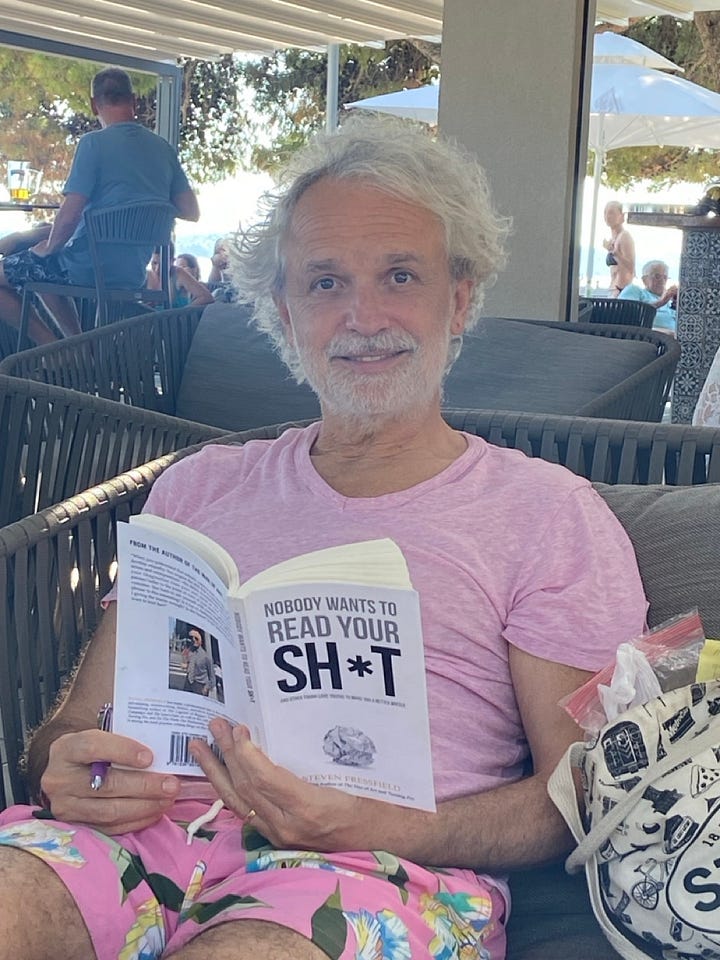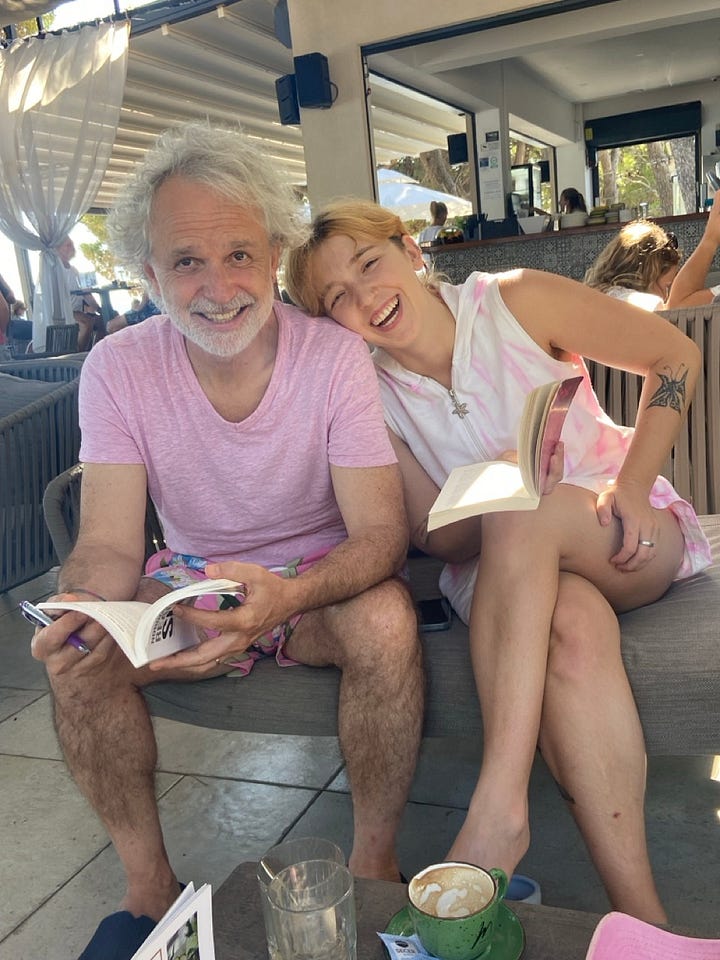Why Nobody Wants to Read What We Write
I ran my book idea by merciless Steven Pressfield.
Hello Book Team,
I’m in Croatia with my family, in-laws, and my past (which is never really just a past).
I decided to re-read Steven Pressfield’s book about writing, “Nobody Wants to Read Your S*it,” and see how my book idea holds up when tested against his badass and weirdly caring way of seeing the world.
Pressfield became a legend in the creator and writer world with his book “War of Art” (a precursor to the recent gentle bestseller “Creative Act” by Rick Rubin).
Pressfield is a legend in the prophetic tradition of speaking to writers about how to get real. (I read five of his non-fiction books, which BTW, speaks to my problem of reading about writing while not writing.)
I will share a couple of excerpts from Steven’s book and then an abridged draft of the Book Map I created when running my “How To Be Out of Control” through the structure he suggests.
What Nobody Wants to Read Your Shit means is that none of us wants to hear your self-centered, ego-driven, unrefined demands for attention. Why should we?…
Nobody wants to read your shit.
Let me repeat that. Nobody–not even your dog or your mother–has the slightest interest in your commercial for Rice Krispies or Delco batteries or Preparation H. Nor does anybody care about your one-act play, your Facebook page or your new sesame chicken joint at Canal and Tchopotoulis.
It isn’t that people are mean or cruel. They’re just busy.
Nobody wants to read your shit. …
When you understand that nobody wants to read your shit, your mind becomes powerfully concentrated. You begin to understand that writing/reading is, above all, a transaction. The reader donates his time and attention, which are supremely valuable commodities. In return, you the writer, must give him something worthy of his gift to you.
When you, the student writer, understand that nobody wants to read your shit, you develop empathy. You acquire that skill which is indispensable to all artists and entrepreneurs: the ability to switch back and forth in your imagination from your own point of view as writer/painter/seller to the point of view of your imagined reader/gallery-goer/customer.




